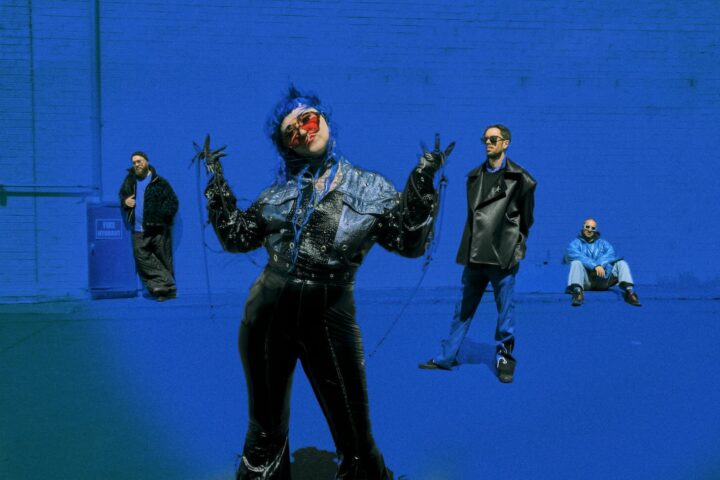Austin trio Loma has never really sounded like a live band, often reliant on overdubbing multiple instruments to create their singular sound. Nor have they limited themselves to standard rock instrumentation, with clarinet, viola, and field recordings featured prominently in the mix on their third studio album, How Will I Live Without a Body?
Where 2020’s Don’t Shy Away played with ornate arrangements that leaned toward British art rock and psychedelia, parts of How Will I Live Without a Body? were recorded in the English countryside (in addition to Texas and Germany), where a ruined chapel was used to record vocals due to its natural reverb. Indeed, Loma can do a lot with very little. The drums on “Arrhythmia” build up to the clatter of what sounds like running horses as singer Emily Cross harmonizes with herself, creating an atmosphere that’s more important than any single lyric.
Though they’ve evolved from their origins as a side project of post-rock group Shearwater, Loma has retained an intense penchant for dynamics. Sudden shifts in volume and timbre abound. Instead of leading into a chorus as one might expect, the band introduces a new instrument or begins playing much louder. When Cross sings, “Turn around,” amid deeply distorted guitar on “Unbraiding,” it’s as though she expects to see a slasher movie villain sneaking up behind her.
An A.I. trained on Laurie Anderson’s body of work (commissioned by the artist herself) came up with the album’s title, as well as lyrics to several of the songs. Fittingly, How Will I Live Without a Body? reflects Cross’s day job as an end-of-life doula. Its lyrics, full of references to the natural world, describe transient states of mind, suggesting thoughts being casually jotted down: “All the gulls in England are calling like thoughts of someone else,” Cross sings on “Turnaround.”
Even if the details are kept opaque, however, the drama of songs like “How It Starts” and “Broken Doorbell” are deeply affecting. While some of the power of How Will I Live Without a Body? comes from its obliqueness, Loma manages to locate a middle ground between embracing one’s darker emotions and finding a way out of them.
Since 2001, we've brought you uncompromising, candid takes on the world of film, music, television, video games, theater, and more. Independently owned and operated publications like Slant have been hit hard in recent years, but we’re committed to keeping our content free and accessible—meaning no paywalls or fees.
If you like what we do, please consider subscribing to our Patreon or making a donation.



